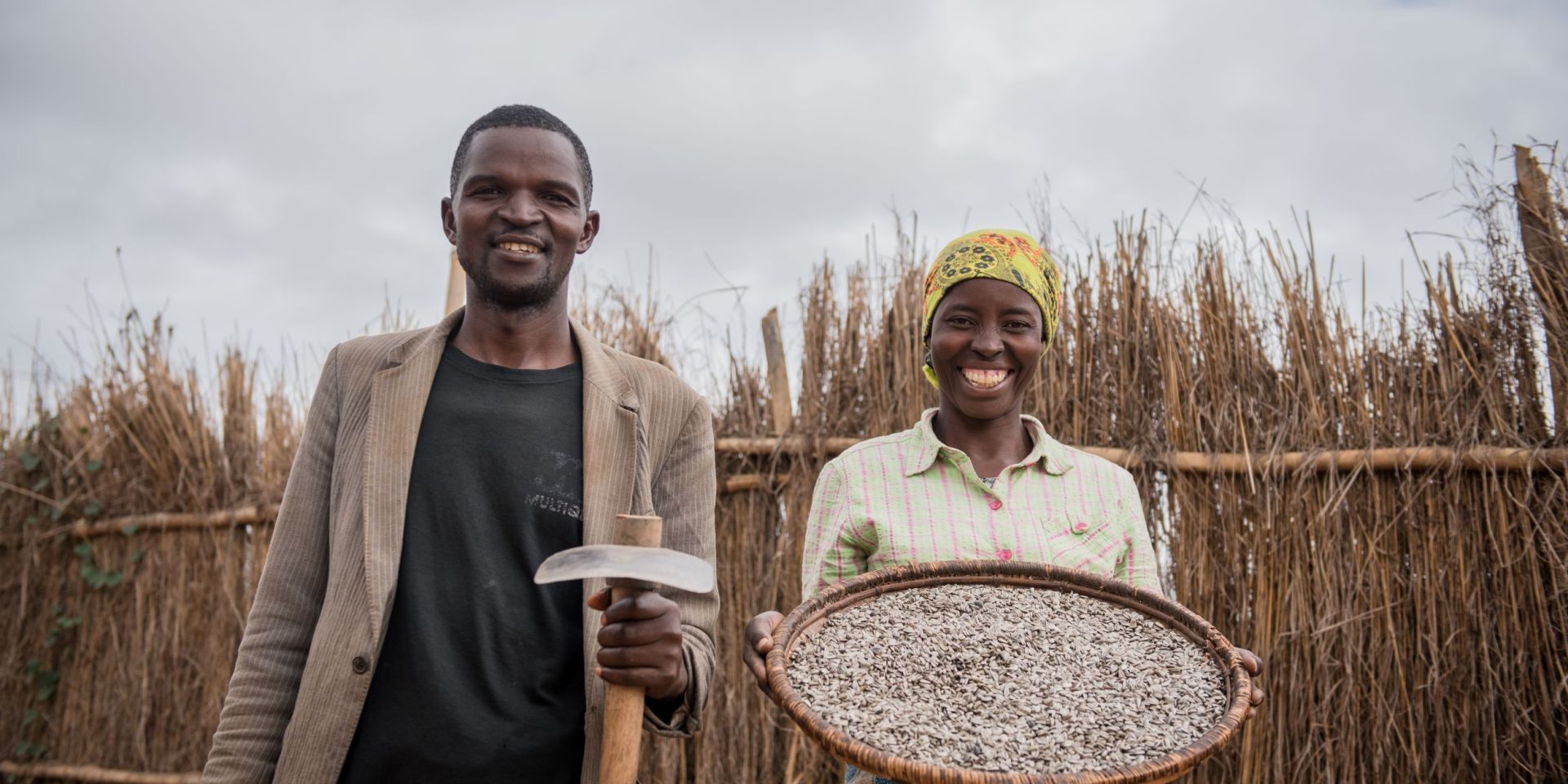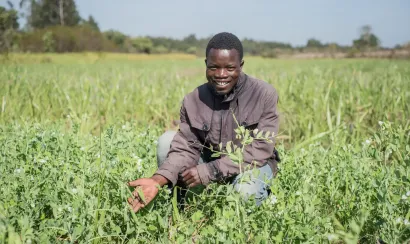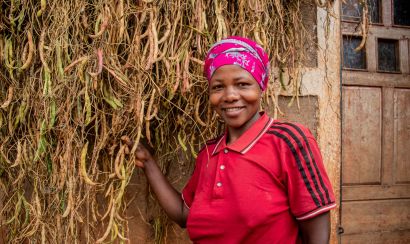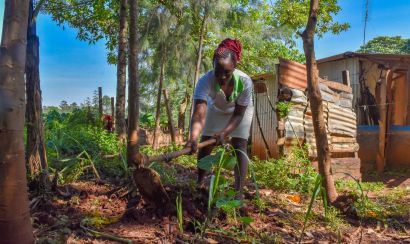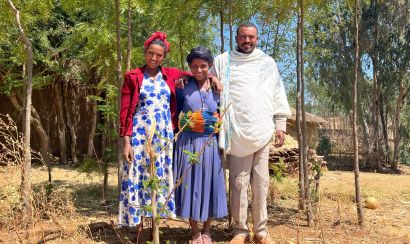How crop diversification drives climate resilience and boosts farmer income
In the mountainous landscapes of Tanzania’s Kilolo District, Basil Mbosa and his wife, Grace Kalamba, are shifting from reliance on crops like maize and beans to explore growing sunflowers. For these smallholder farmers, the shift has not only improved their yields but has helped them diversify their income streams and has proved to be a good investment in securing a better future for their family.
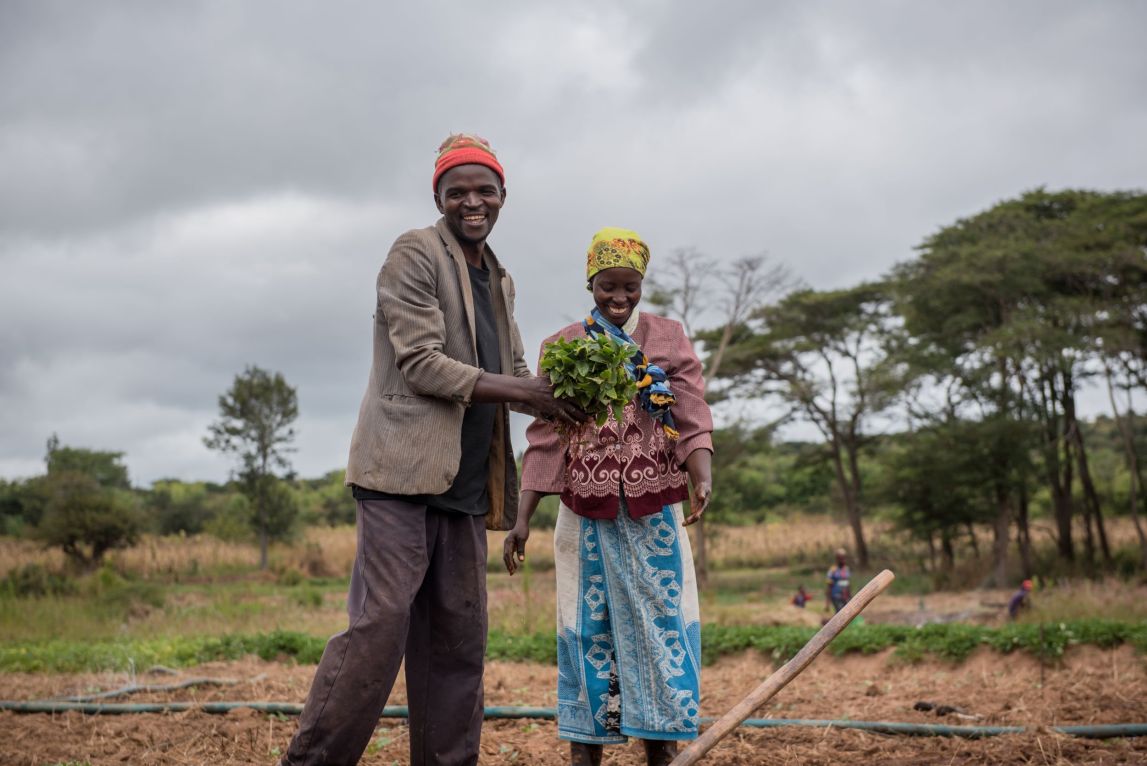
The journey towards this decision unfolded gradually. “Our maize and beans harvest was always low even though we used large amounts of fertilizer. It was a learning curve with One Acre Fund guiding us on the correct fertilizer measurement, ensuring higher yields, and optimizing fertilizer usage," says Basil.
Where they once harvested just 8-10 bags of maize per acre in a season, they now harvest 20 bags. Able to sell the surplus, they now have extra income which has meant they can comfortably afford their children's school fees.
Sunflowers - a resilient and lucrative choice
The couple was thrilled to discover that they could lower their fertilizer costs through precise application and have not stopped there. In 2023, when they learned about One Acre Fund's sunflower program they eagerly enrolled. The program provides them with sunflower seeds and comprehensive training on sunflower farming. They are now growing sunflowers on three acres of their land.
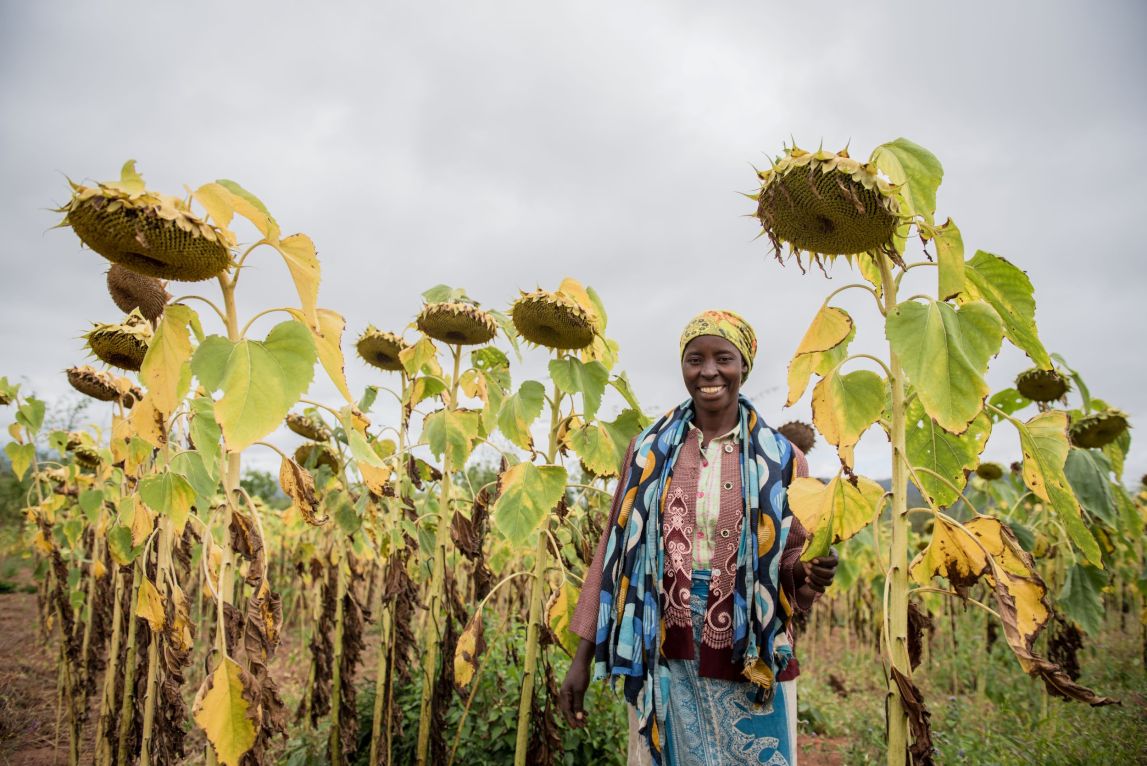
“Unlike other perishable crops that rot easily, sunflower seeds have a longer shelf life as they cannot be affected by pests after harvest. We do not need chemicals or special bags to store our sunflowers, and this reduces reliance on post-harvest necessities. Additionally, the variety from One Acre Fund is high-yielding and germinates faster. We expect a good harvest,” Grace says.
The shorter growing periods of sunflowers mean farmers can harvest the crop earlier, allowing them to sell their produce at a higher price before the market becomes saturated. In Tanzania, sunflower seeds are becoming increasingly valuable, and there's a growing demand for their oil. As one of the top ten sunflower oil seed producers globally, the country is also experiencing a rise in local demand for the oil, driven by the rising prices of traditional cooking oils.
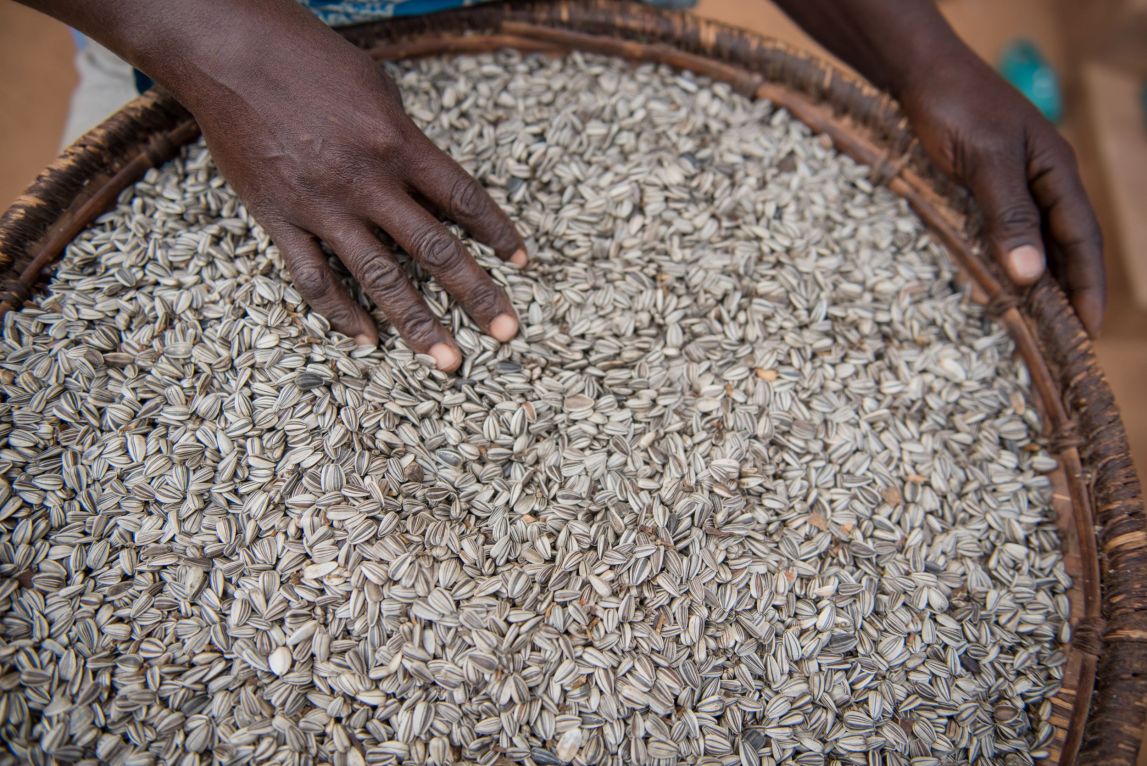
For One Acre Fund, figuring out the kinds of crops and crop varieties farmers need most in their changing environments—high-yielding, disease-resistant, drought-tolerant, or early-maturing—is crucial to developing resilient farming systems and allowing farmers to still earn in spite of the changing climate and as a means of diversifying their income. It is great to see that crop diversification isn't just a farming strategy; it's a catalyst for change. It propels farmers towards economic self-sufficiency, safeguards the environment, and fosters thriving communities.
